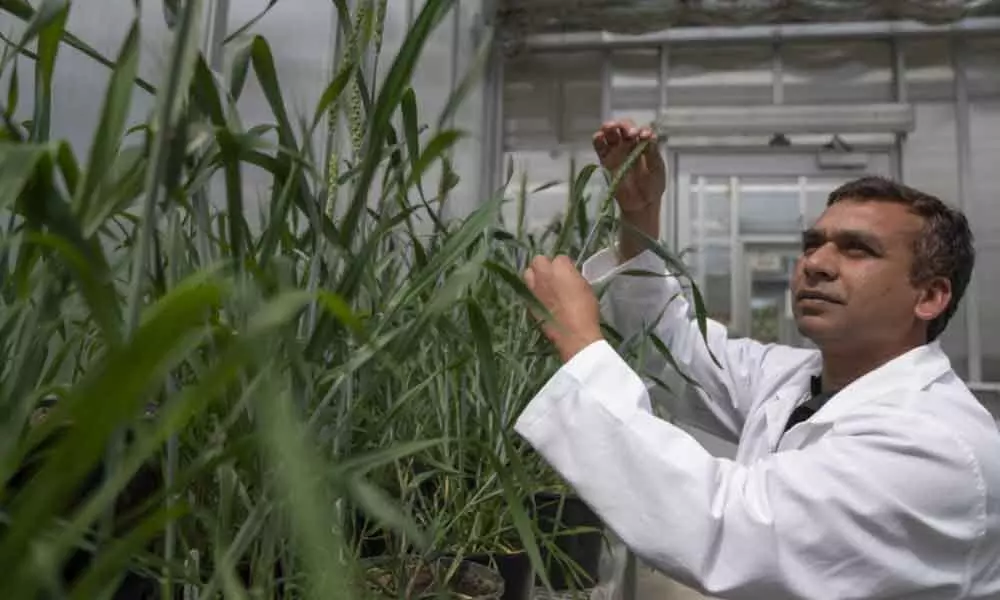A simple test to grow drought-resilient crops

Researchers, including one of Indian origin, have developed a simple test to help breeders grow drought-resilient crops that can produce more food and profit using less water.
Researchers, including one of Indian origin, have developed a simple test to help breeders grow drought-resilient crops that can produce more food and profit using less water.
The method, described in the Journal of Experimental Botany, measures the relative abundance of four amino acids in wheat plants to predict their ability to maintain yield under drought much more accurately than current state-of-the-art methods. This test can be done precisely in greenhouses all year round, at a fraction of the cost of traditional field-based methods. It also gives more accurate predictions, researchers said.
Drought tolerance is critically important in the face of climate change, population growth, and land-use pressures. The team, including Arun Yadav from The Australian National University (ANU), developed a method to identify drought-resilient wheat quickly, cheaply and accurately. Selecting wheat that can grow better during short- to medium-term drought is vital to help fight food insecurity around the world.
"Our work may be instrumental for farmers to maximize food production in the face of increasingly severe drought," said Yadav. He said hardy crop plants that can maintain high yields under drought will help farmers produce more food reliably.
"If breeders are provided with 1,000 wheat varieties to choose from, they can select the drought resilient lines through a simple assessment of the four amino acids we've identified," said Professor Barry Pogson, Deputy Director of the ARC Centre of Excellence in Plant Energy Biology at ANU. The researchers said the challenge is to show this technique does scale beyond the variety tested to date.




